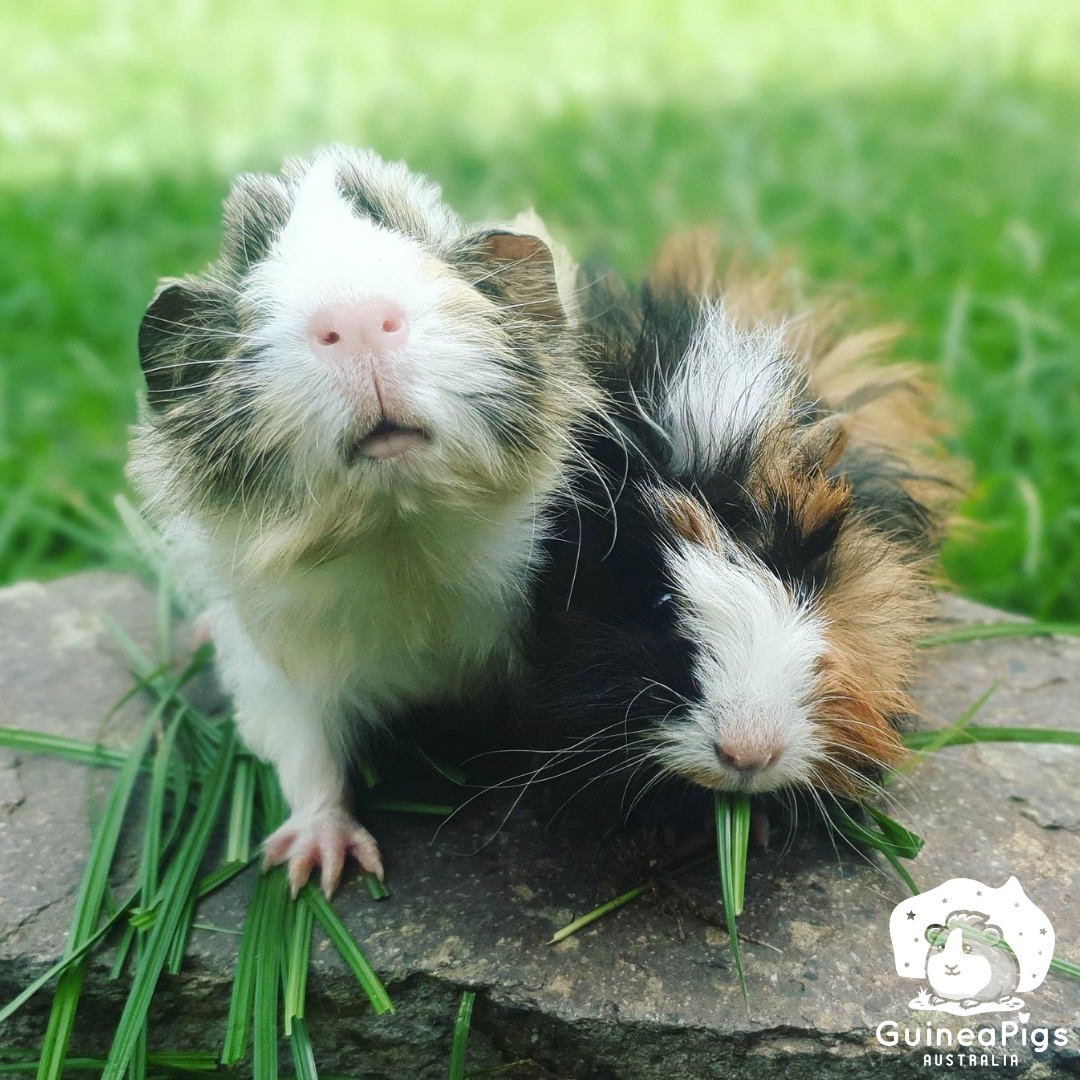
Routine Health Checks for guinea pigs
As guinea pig owners there are many responsibilities involved with keeping them happy and healthy - and one of those things is performing regular health checks. Guinea pigs are prey animals, and therefore notorious for trying to hide any signs of illness, so it's important to take the time each day to have a close look and make sure everything is normal and healthy. If you do notice any abnormalities or concerns, it is highly recommended to visit your veterinarian asap as some conditions can become quite serious, quite quickly, hence early detection is key to a positive prognosis.

Complete 'nose to tail' Health Check Guide
- Nose - Should be clear, with no signs of crusting or discharge. Excessive sneezing or 'breathing sounds' can be a sign of respiratory disease.
- Ears - Should be clean, with no crusting or discharge. It is NORMAL for guinea pigs to have a small hairless patch behind each ear.
- Eyes - Both eyes should be clear and fully opened. If your guinea pig is holding an eye shut or squinting, please consult your veterinarian - hay poke injuries and corneal ulceration is a common and serious condition. Guinea pig eye colour can vary between red, brown and black. BLUE discoloration is abnormal, and should be checked by a veterinarian immediately.
- Mouth - Guinea pigs have many teeth, but the easiest to examine are the 4 incisors easily visible at the front of the mouth - these incisors should be even in length, and the top and bottom should meet together. Overgrown incisors can be a sign of more serious and complicated dental disease, and should be investigated further. The mouth and chin should also be dry, with no signs of drooling or panting.
- Skin and coat - Should be clean and free of dirt, matts and knots. Check for signs of wounds, hairloss, crusting or excess scratching. As mentioned above, it is normal to have a small bald patch behind each ear. Hair loss can be an indication of trauma, parasites or endocrine related disease.
- Feet and nails - Check each paw for any signs of redness, swelling or sores. Guinea pigs require nail trimming about every 4-6 weeks and ideally should be kept nice and short. Nail trimming can be intimidating, so check out our video on nail trimming here for some tips and tricks to help you at home.
- Toileting - Poops should be solid, brown, oval in shape and passed frequently. Soft, small, stringy, or abnormal faeces can be a sign of many serious underlying medical conditions. The colour of urine can vary between clear to a light red colour, however signs of blood or straining to urinate is abnormal. You can read more about normal and abnormal urine here.
- Weight - The normal weight for adult guinea pigs is between 800 - 1200grams, with males being slightly heavier than females. Weekly weigh in's are important to detect early signs of weight loss and various medical conditions.
- Behaviour - Check daily to make sure your guinea pig is eating and drinking normally. A healthy guinea pig should appear bright, alert and active. Any changes in their behaviour can be a sign of underlying illness.








